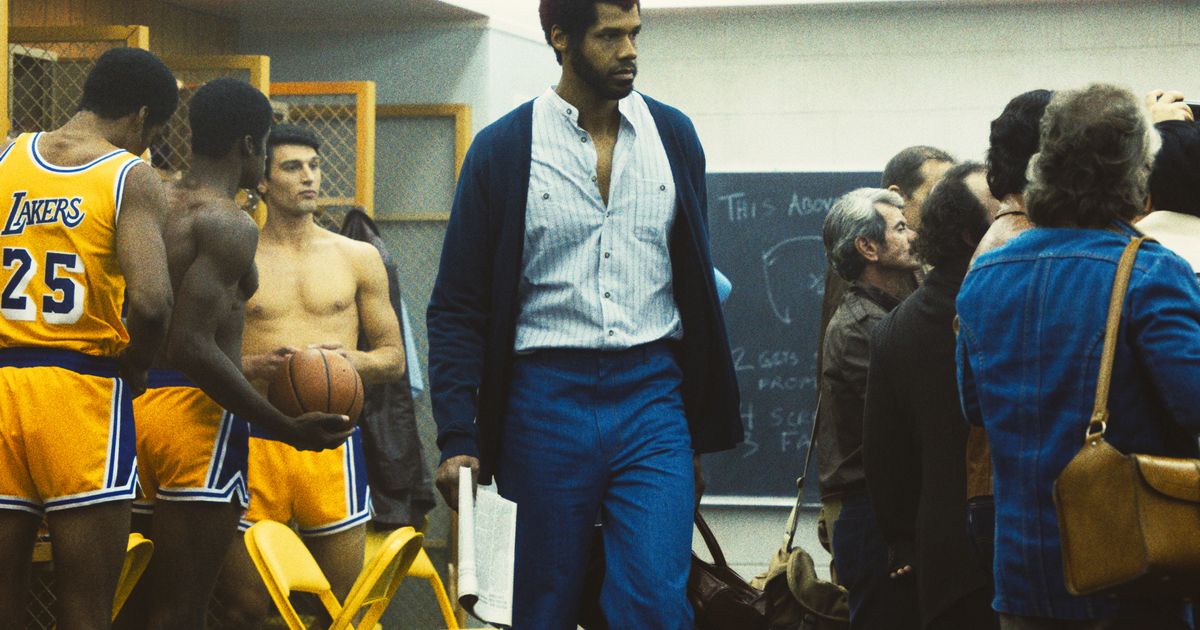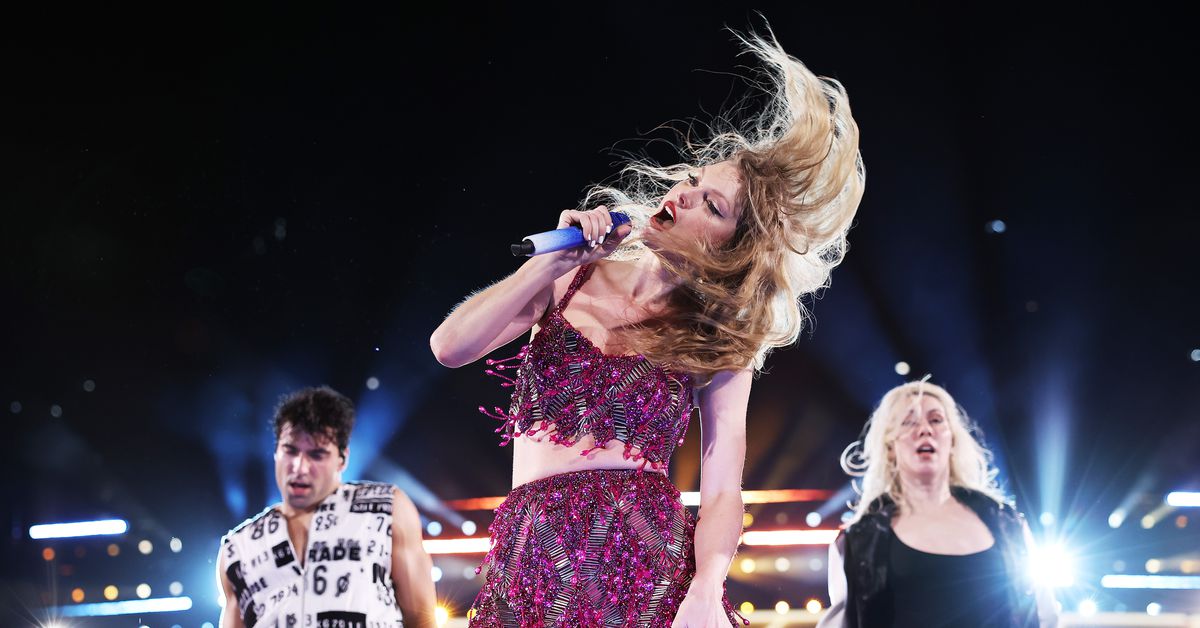
Winning Time Recap: Et Tu, Pat?
Season 2 Episode 2 Editor’s Rating3 stars ***
Photo: Warrick Page/HBO We are currently living in the player-empowerment era in the NBA, where stars have the leverage to influence personnel decisions, get coaches hired or fired, and even get themselves traded to another team while they’re still under contract. The league and the owners it represents push back against reality at every opportunity — witness this summer, as the agent for Portland Trail Blazers star Damian Lillard was reprimanded for his intention to engineer a Lillard trade exclusively to Pat Riley’s Miami Heat — but superstars are precious and simply have more value than the coaches and general managers who are supposed to run the team. This isn’t necessarily a bad thing, but it does introduce a tension between management and players that can upend even the most talented team’s fortunes. (Hello, Brooklyn Nets fans.)
The return of Magic Johnson to the lineup after a three-month-plus absence causes all kinds of discord on this week’s episode of Winning Time, but the show does well in understanding that Magic’s ego isn’t the only one that causes problems with his return. For Paul Westhead, Magic’s absence from the team was a player disempowerment opportunity. No longer tied to an offense built around Magic’s transcendent skill set — the one that, you know, won the Lakers a championship the previous year — Westhead could incorporate “The System” and put his own mark on a team that Jack McKinney, his predecessor and mentor, had brought into form. If he could get the players to buy into the system, this Lakers team could be optimized and cohesive, which of course is any coach’s goal. But they would also be his. That’s ego.
The primary source of tension on the team is at the point guard position, which Norm Nixon has so capably commanded in Magic’s absence that he’s having an All Star–level season. Westhead loves Nixon in the role, too, because the point guard runs the offense and thus gets to dictate his will. For Nixon to thrive in the role is a validation of Westhead’s approach, but it also blinds him to the obvious fact that Magic Johnson, who had just led the team to a title in his rookie season, is a unicorn. Magic is bigger and stronger than anyone at his position, and his court vision and passing skills are virtually without precedent. It takes a special sort of arrogance — or just severe miscalculation — to ignore the obvious and believe that a coaching scheme needn’t be retooled by the return of a player like Magic.
And yet, Magic is not fully back. His first game whips up a level of hype that annoys his teammates, who have been winning without him, but there are immediate signs that not all is right in Laker-land. For one, Westhead burns through nearly the entire first quarter without putting Magic in the game, despite a sold-out crowd in the Forum wearing “The Magic Is Back” T-shirts and chanting his name. Then, when Magic does get on the floor, the rust is so thick on his game that he has more turnovers than baskets made and costs the team the victory. Back in the locker room, he waits until the other players have vacated before immersing himself in an ice bath to manage his aching knee. Pat Riley picks up on what’s happening, and the situation takes another turn.
So now, along with Magic, Nixon, and Westhead’s egos, there’s a fourth ego in the mix: Riley’s. When Riley starts bringing Magic along in secret practice sessions, it could generously be understood as a coach rehabbing a key player in the lead-up to the playoffs. But Riley can see the future, which is why his career as a coach and a front-office wizard would lead to nearly as many championship rings as he has fingers. This show is moving through the 1980–81 season so quickly that a lot of the conflicts are spelled out in the dialogue rather than more thoroughly developed, but the time spent here with Magic and Riley is more carefully rendered, perhaps because the long game is so important. Riley is not necessarily betting on Magic’s greatness in the short term since he’s actively suppressing bad news about the state of the star’s knee. He’s building a relationship that will pay off later because he recognizes that bringing Magic along will be more valuable than making sure Norm Nixon is happy.
Westhead sees Riley’s maneuvers as an act of insubordination, which is fair. As an assistant, Riley’s job is to help execute his vision for the team, but secret practices certainly undermine Westhead’s authority, and he’s keenly aware of it. One major issue at play in “The Magic Is Back” is the possibility of a trade for Denver Nuggets shooting guard David Thompson, a player nicknamed “Skywalker” for his off-the-charts athleticism. Bringing Thompson onboard would make the Lakers a three-superstar team, which future Pat Riley, the man behind “the Heatles” (LeBron James, Dwyane Wade, and Chris Bosh), will prove is a successful formula. Thompson would fit the Lakers’ fast-paced style like a glove and resolve the conflict at point guard by shipping Nixon to the Nuggets. But incredibly, Westhead has veto power over trades written into his contract, and all of this behind-the-scenes finagling by Riley and Jerry West prompts him to assert that power, lest he seem completely ineffectual.
There’s no telling how far these Lakers would have gone if the trade for Thompson had been made, given Magic’s knee problems. But ultimately, Westhead ends up taking ownership of a disastrous postseason, with his now-dysfunctional team falling apart in a three-game series against a very weak Houston Rockets squad. To add insult to injury, McKinney has gone off to win Coach of the Year in his new position with the Indiana Pacers, fueling the notion that any success Westhead has enjoyed can be credited to his mentor’s genius. When a successful team goes south like these Lakers, politics tend to take over. And Westhead, with his literary background, may be seeing Riley as Brutus to his Julius Caesar.
Alley Oops
• This episode was directed by Trey Edward Shults, whose low-budget 2015 debut feature Krisha has a nervy, aggressive edge to it that suits the Winning Time style quite well. Shults also directed the underrated 2017 horror film It Comes at Night and the 2019 drama Waves, which seemed like his most audience-friendly film but didn’t land as well as expected.
• The rushed quality of this season leaves a big gap in the team’s cool treatment of Magic Johnson here. Obviously they had to come together after his injury and may resent his stardom, particularly as a player only in his second season. But outside of Norm Nixon, whose starting position is threatened, the show doesn’t set up why Magic’s return is met with such derision by everyone else.
• It’s a really weird TV thing to gather a bunch of NBA minds like Westhead, Riley, and West in a room and make it seem like David Thompson is some unknown quantity. It would be malpractice for them not to know every player on every team, plus prospects.
• The new character Honey, played by Ari Graynor, is a composite of former Jerry Buss girlfriends and wives, which seems like a good indication of where that relationship might be going.
• Shout-out to the Rockets for making it all the way to the Finals in 1981. To end the season 40-42 and take the Boston Celtics to six games is a playoff push worthy of, well, Pat Riley’s 2022–23 Miami Heat.
• “Everybody’s a fucking hero in their driveway. You put them under the bright lights, clock ticking down, most of them are praying that the ball don’t come to them. One guy’s praying that it does.” That’s a nice little monologue from Riley, who admits that he was one of those guys who didn’t want the ball. It’s a little like Billy Beane in Moneyball. As general manager of the Oakland A’s, he wanted to find prospects who were not like him as a pro.
VULTURE NEWSLETTER
Keep up with all the drama of your favorite shows!This site is protected by reCAPTCHA and the Google Privacy Policy and Terms of Service apply. Vox Media, LLC Terms and Privacy Notice
<
p aria-hidden=”true”>By submitting your email, you agree to our Terms and Privacy Notice and to receive email correspondence from us.










































































